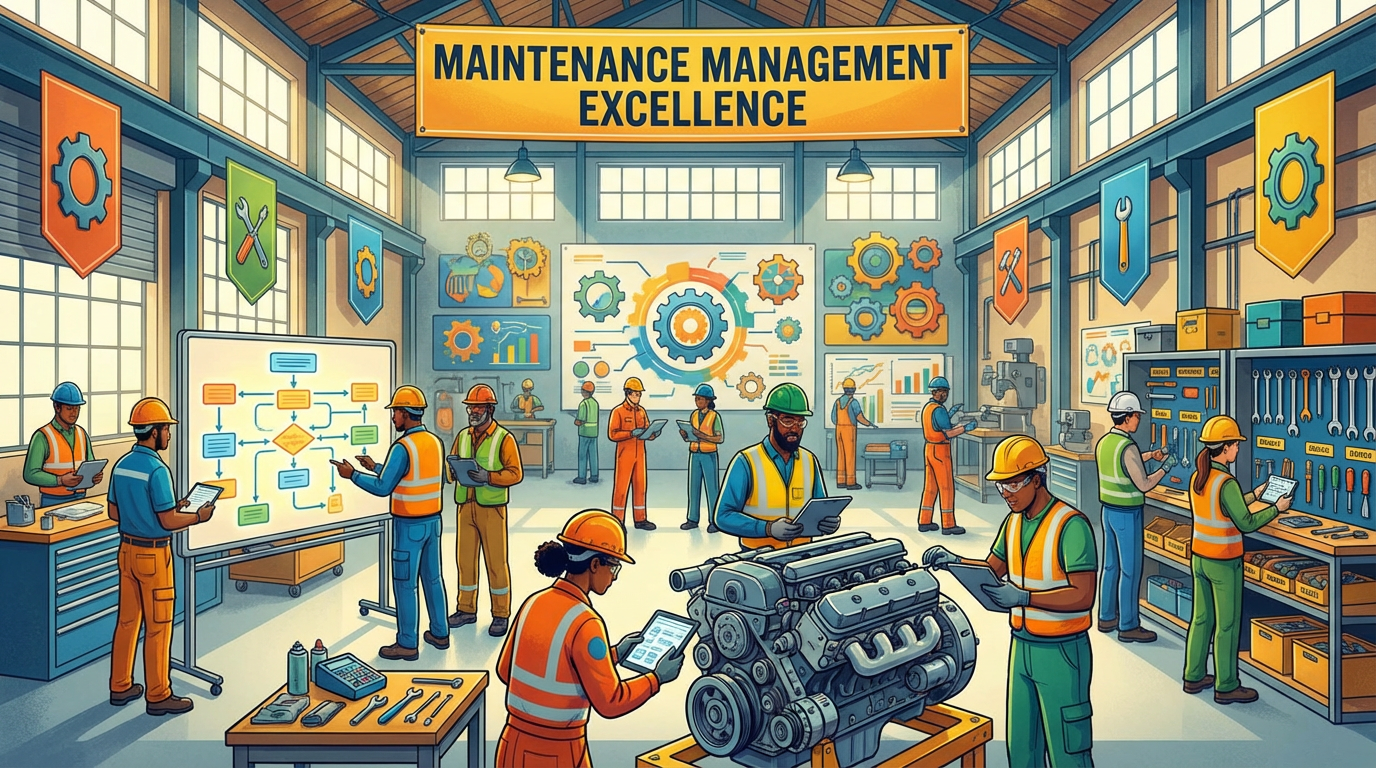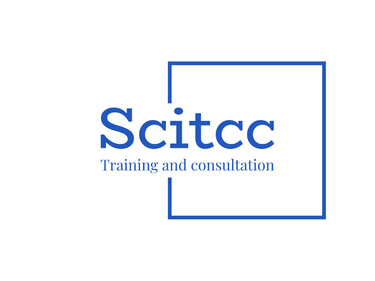
Maintenance Management Best Practices
Oil and Gas Equipment Engineering Course
$5500.00
Maintenance Management Best Practices: 5-Day Course Outline
Transform Your Maintenance Operations with Industry-Leading Training
This comprehensive 5-day Maintenance Management Best Practices course outline provides a structured roadmap for professionals seeking to master modern maintenance strategies, optimize asset performance, and drive operational excellence. Designed for maintenance managers, plant engineers, facility supervisors, and reliability professionals, this intensive program combines theoretical foundations with practical applications to deliver measurable results.
Day 1: Strategic Maintenance Management Foundations
Morning Session: Introduction to Maintenance Excellence (9:00 AM - 12:30 PM)
Module 1.1: The Evolution of Maintenance Management
Historical perspectives: From breakdown to predictive maintenance
Understanding the four maintenance generations
The business case for proactive maintenance strategies
Industry benchmarks and performance standards for 2026
Module 1.2: Maintenance Strategy Development
Aligning maintenance objectives with organizational goals
Types of maintenance: Reactive, preventive, predictive, and reliability-centered
Asset criticality assessment and risk-based prioritization
Developing maintenance policies and procedures
Module 1.3: Key Performance Indicators (KPIs)
Essential maintenance metrics: OEE, MTBF, MTTR, and availability
Measuring maintenance effectiveness and efficiency
Cost analysis: Maintenance cost per unit produced
Creating balanced scorecards for maintenance performance
Afternoon Session: Organizational Structure and Leadership (1:30 PM - 5:00 PM)
Module 1.4: Building High-Performance Maintenance Teams
Optimal organizational structures for maintenance departments
Roles and responsibilities: Planners, schedulers, technicians, supervisors
Skills gap analysis and competency development
Change management principles for maintenance transformation
Module 1.5: Stakeholder Management and Communication
Interfacing with operations, engineering, and procurement
Executive reporting and demonstrating maintenance value
Building collaborative relationships across departments
Workshop: Developing your maintenance strategy roadmap
Day 2: Preventive and Predictive Maintenance Systems
Morning Session: Preventive Maintenance Excellence (9:00 AM - 12:30 PM)
Module 2.1: Preventive Maintenance (PM) Program Design
Time-based versus condition-based maintenance strategies
Creating effective PM task lists and checklists
Frequency optimization: Finding the right maintenance intervals
Module 2.2: Equipment Failure Analysis
Understanding failure modes and failure patterns
Failure Mode and Effects Analysis (FMEA) methodology
P-F interval concept and early warning detection
Root Cause Analysis (RCA) techniques: 5 Whys, Fishbone diagrams
Module 2.3: Reliability-Centered Maintenance (RCM)
RCM principles and decision logic
Criticality analysis and asset prioritization
Developing maintenance tasks based on failure consequences
Case study: RCM implementation success stories
Afternoon Session: Predictive Maintenance Technologies (1:30 PM - 5:00 PM)
Module 2.4: Condition Monitoring Techniques
Vibration analysis for rotating equipment
Thermography and infrared scanning applications
Oil analysis and tribology fundamentals
Ultrasonic testing and acoustic monitoring
Module 2.5: IoT and Smart Maintenance
Industrial Internet of Things (IIoT) sensors and connectivity
Real-time equipment health monitoring systems
Artificial intelligence and machine learning in predictive maintenance
Digital twin technology for asset management
Practical exercise: Developing predictive maintenance strategies
Day 3: CMMS Implementation and Digital Transformation
Morning Session: CMMS Fundamentals (9:00 AM - 12:30 PM)
Module 3.1: Introduction to Computerized Maintenance Management Systems
Market overview: Leading CMMS platforms and selection criteria
Cloud-based versus on-premise solutions
Mobile CMMS applications for field technicians
Module 3.2: CMMS Implementation Planning
Needs assessment and requirements gathering
Vendor evaluation and selection process
Implementation timeline and project management
Data migration strategies and asset hierarchy development
Module 3.3: CMMS Configuration Best Practices
Equipment database setup and asset coding systems
Work order workflow configuration
Preventive maintenance scheduling within CMMS
Inventory module setup and integration
Afternoon Session: Maximizing CMMS Value (1:30 PM - 5:00 PM)
Module 3.4: Work Order Management
Creating, assigning, and tracking work orders
Priority codes and emergency response protocols
Work order documentation and closeout procedures
Performance reporting and analytics dashboards
Module 3.5: Integration and Advanced Features
ERP system integration for seamless operations
Procurement and purchasing linkages
Document management and technical libraries
Hands-on workshop: CMMS platform navigation and configuration
Day 4: Planning, Scheduling, and Inventory Optimization
Morning Session: Maintenance Planning Excellence (9:00 AM - 12:30 PM)
Module 4.1: The Planning and Scheduling Function
Distinguishing planning from scheduling
The maintenance planner role and responsibilities
Job planning process: Scoping, estimating, and preparing
Standard job plans and work packages development
Module 4.2: Maintenance Scheduling Strategies
Weekly scheduling process and best practices
Resource allocation and capacity planning
Backlog management and prioritization techniques
Coordination with production schedules
Module 4.3: Workforce Productivity Optimization
Wrench time analysis and improvement strategies
Reducing maintenance delays and waiting time
Multi-skilling and cross-training programs
Contractor management and outsourcing decisions
Afternoon Session: Spare Parts and Inventory Management (1:30 PM - 5:00 PM)
Module 4.4: Inventory Optimization
ABC analysis for inventory prioritization
Economic Order Quantity (EOQ) and reorder point calculations
Just-in-time inventory versus strategic stocking
Obsolescence management and disposal strategies
Module 4.5: Storeroom Operations
Parts cataloging and nomenclature standardization
Warehouse organization and 5S methodology
Bill of materials (BOM) development for equipment
Cost control and inventory turnover metrics
Exercise: Developing planning and scheduling procedures
Day 5: Continuous Improvement and Maintenance Excellence
Morning Session: Advanced Maintenance Methodologies (9:00 AM - 12:30 PM)
Module 5.1: Total Productive Maintenance (TPM)
Eight pillars of TPM implementation
Autonomous maintenance and operator ownership
Focused improvement and problem-solving techniques
TPM success metrics and sustainability
Module 5.2: Asset Lifecycle Management
Lifecycle cost analysis and total cost of ownership
Capital planning and replacement strategies
Maintenance engineering and design improvements
Decommissioning and disposal considerations
Module 5.3: Safety and Compliance
Lockout/tagout (LOTO) procedures
Permit-to-work systems for high-risk activities
Regulatory compliance: OSHA, EPA, and industry standards
Safety culture development in maintenance operations
Afternoon Session: Implementation and Certification (1:30 PM - 5:00 PM)
Module 5.4: Building Your Maintenance Excellence Roadmap
Conducting maintenance maturity assessments
Developing phased implementation plans
Quick wins versus long-term transformation initiatives
Overcoming resistance and driving organizational change
Module 5.5: Benchmarking and Continuous Improvement
Industry benchmarking studies and comparisons
Continuous improvement frameworks: Kaizen, Six Sigma
Creating a culture of maintenance excellence
Knowledge management and lessons learned systems
Module 5.6: Course Review and Certification Assessment
Comprehensive review of key concepts
Case study: Integrated maintenance management scenario
Written examination and practical assessment
Certificate of completion and continuing education credits
Course Delivery Methods
This maintenance management training program utilizes multiple learning approaches:
Interactive lectures with industry expert instructors
Hands-on workshops using real CMMS platforms
Group exercises promoting peer learning and networking
Case studies from manufacturing, utilities, and facilities management
Site visits (where applicable) to world-class maintenance operations
Practical assessments ensuring competency validation
Target Audience and Prerequisites
Ideal participants include:
Maintenance and reliability managers
Plant and facility engineers
Operations supervisors transitioning to maintenance roles
Maintenance planners and schedulers
Asset management professionals
Technical services coordinators
Prerequisites: Basic understanding of industrial operations; 2+ years of maintenance or operations experience recommended but not required.
Key Takeaways and Learning Outcomes
Upon completing this intensive maintenance management certification program, participants will:
✓ Design comprehensive preventive maintenance programs reducing failures by 40-60%
✓ Implement CMMS systems driving data-driven maintenance decisions
✓ Develop maintenance KPIs demonstrating organizational value
✓ Optimize planning and scheduling processes improving workforce productivity
✓ Apply predictive technologies extending asset lifespan
✓ Lead maintenance transformation initiatives with confidence
Invest in Maintenance Excellence Today
This structured 5-day course outline provides the framework for transforming maintenance operations from cost centers to strategic assets. Whether you’re implementing new technologies, optimizing existing processes, or building high-performance teams, this comprehensive training delivers the knowledge, tools, and certification needed for maintenance management success in 2026 and beyond.


